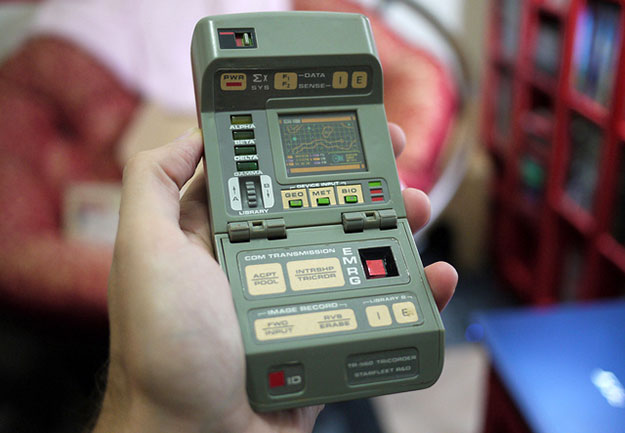Doctor-Family Team Wins Qualcomm Competition To Build A Real Star Trek Tricorder
In more ways than just one, Star Trek was able to predict the future, though at the time of the show's airing, the ideas may have seemed outlandish. A universal translator? Anyone with a smartphone or PC can take advantage of that these days. A Tablet-style computer? Well, we don't need to elaborate there. We've even seen examples of the Holodeck come to fruition.

Toy Replica Of The Star Trek Tricorder - credit: Flickr user keithius
And now, thanks to the Qualcomm-funded X Prize competition, we're able to add Tricorders to that list; at least, the kind of Tricorder that focuses on medical applications. The team of Final Frontier Medical Devices managed to take the top prize of $2.6 million, and it sure wasn't without competition. In all, an impressive 312 entrants from 38 countries took part, with many of the teams having corporate and government backing.
The ultimate goal was to have these teams create a Tricorder that could both recognize 13 "disease states", and also monitor health vitals. The diseases it can detect are wide-ranging, including anemia, sleep apnea, pneumonia, and diabetes. Teams were also able to choose 3 other health conditions to detect, which included melanoma, shingles, strep throat, HIV screening, and whooping cough. As for the monitoring, that had to include blood pressure, heart rate, oxygen saturation, respiratory rate, and temperature.
The ultimate result in hardware form? Behold:
Clearly, this real-world Tricorder differs quite a bit from its Star Trek original, but it does offer some key benefits. For starters, the sensors are non-intrusive, and the tablet allows a nice big display to analyze data on-the-fly (although the same kit could easily enough work on a smartphone, as it's the interpretation software that matters).
What makes this Tricorder ultimately important is that it's consumer-focused, not just to be used by doctors. That should mean that the cost-of-entry shouldn't be too prohibitive once the product hits the market. Its existence, and its complete reliance on modern technologies, really highlights how advanced self health-diagnosis will be in the future.


